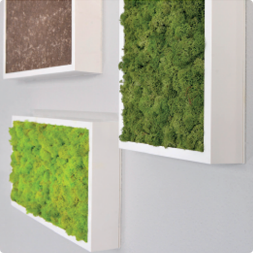Aglaonema Stripes
$64.00 – $144.00
The Aglaonema Stripes is an eye-catching plant known for its striking foliage. It features dark green leaves adorned with vibrant and distinctive stripes of silver, cream, or white. Thriving in low to moderate light settings, this Aglaonema variety brings a touch of elegance and visual interest to any indoor space while providing air-purifying benefits.
Plant Details
| Size | 2-3', 3-4' |
| Difficulty | Easy Care Level |
| Light | Low Light, Medium Light, Bright Indirect Light |
| Pet Friendly | This plant may be toxic to pets |
Our 30-Day Guarantee
Description
The Aglaonema Stripes, just like its sister variations (Aglaonema Silver Bay, Aglaoneema Mary Ann & Aglaonema Jubilee) is widely used in the interior plant leasing business mainly because it doesn’t require much attention to keep it looking good. Sometimes simply just referred to as an “Ag” or “Chinese Evergreen”, this native of southeast Asia and southern China has a wide variety of cultivars with dramatically differentiated variegation pattern and leaf pigmentation.
Watering
This plant is a light drinker preferring near desertlike conditions between waterings and can go for 4+ weeks without watering provided it’s equipped with a sub-irrigation system. We still suggest, however, you check it weekly during the first 6-8 weeks after you get it until you’re comfortable with the watering frequency. Remember, thoroughly moisten the soil all the way around the base of the plant and then let it dry out before the next watering. See our watering guide for more information.
Light
Aglaonema Stripes thrive in low and medium light, but the cultivars with less green pigment in the leaves usually requires a little more light to maintain distinctive color patterns. It can be sustained in regular room light conditions where it gets several hours of light from interior lighting sources; put it near a window, however, and you’re golden, or at least “green”. Like with other shade-grown foliage plants, its leaves will burn quickly if exposed to direct mid-day sunlight.
Nutrition
Aglaonema Stripes likely will not need to be fed during the first 6 months after it has shipped. During this time, it will use the residual nutrients from nursery production. After 12 months, it can be fed quarterly with a complete fertilizer formulated for interior plants. If your Aglaonema is positioned on a porch in the south, it may need supplemental nutrition sooner than 12 months. Please refer to our nutrient guide for details.
Cleaning
Like its big-leaf Philodendron cousins, its wide leaves are easy to clean which is good because they can become dusty. Simply wiping the leaves with a wet cloth with a little soap usually does the trick, stroking the leaf from the base (near the stem) to the tip.
Pruning
There’s really not much “pruning” to do on an Ag. Occasionally, a lower leaf will give out and it can simply be pruned off where the leaf meets the stem. This can be done with by-pass pruners or scissors. Like other members of the Araceae plant family, Aglaonemas will attempt to bloom and a spadix will emerge from the stem. Since we need to keep the plant focused on using its nutrients to keep its foliage looking good, an emerging spadix should be removed as soon as it’s visible.
Bugs
Hardly a worry here, the Aglaonema Stripes is not a big target for pests. Scale, mealy bugs, and mites sometimes jump on, but they’re easily controlled by wiping the infested area with a soapy solution. It can take several intermittent cleanings to rid the plant of the pests.
Note
Ags are sensitive to cold and should be kept in areas that do not go below 50 degrees F. We are particularly careful about shipping this plant during late fall, winter, and early spring.


















